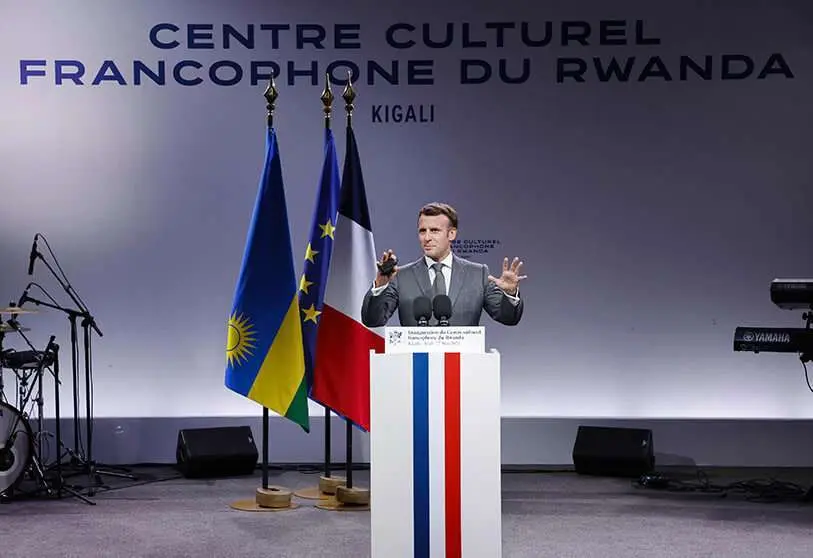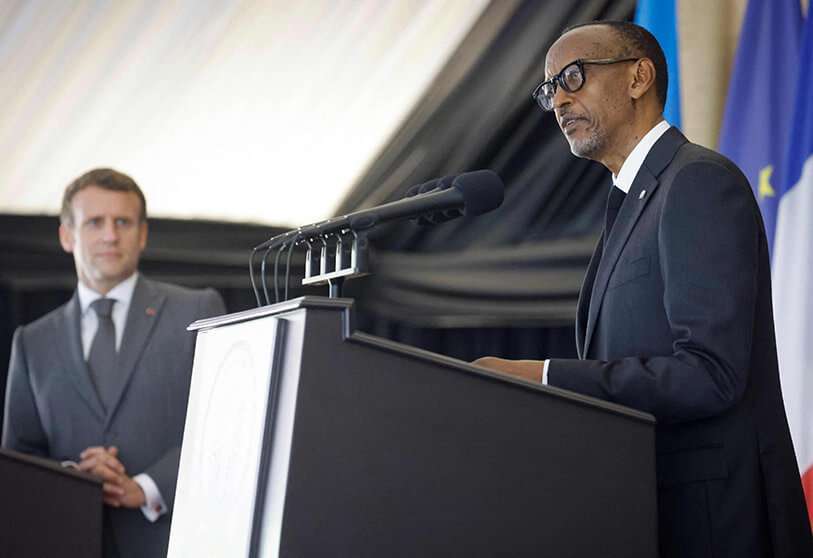France and Germany acknowledge their mistakes during the colonial era in Africa

Colonialism in Africa by European powers involved the relentless exploitation of natural resources. Moreover, the drawing of borders brought together ethnic groups that were not meant to be together, leading to conflicts and massacres. European countries, ignoring warnings, did not prevent genocides, and came close to genocidal regimes. Now, some ex-colonial powers such as France and Germany have decided to admit their responsibility and recognise their mistakes on the African continent.
During an official visit to Rwanda, Emmanuel Macron apologised for France's position on the genocide perpetrated by Hutu militias: "Standing here today, with humility and respect, I have come to acknowledge our responsibilities," the French president declared at the genocide memorial in the Rwandan capital, Kigali. Macron admitted that he had not listened to those who warned of the impending slaughter. However, he added that France "was not complicit" in the genocide of 800,000 Tutsis and moderate Hutus.

Macron's remarks reiterate a report by a French expert commission that the French authorities under François Mitterrand bore "great responsibility" for the genocide. The expert panel, like Macron, argues that France was not complicit in the mass executions.
Rwandan President Paul Kagame praised the words of his French counterpart. "His words were more valuable than an apology. They were the truth," Kagame told a joint press conference. He described Macron's gesture as "an act of tremendous courage". During the French president's visit, Kagame stressed that ties between the two countries would be strengthened in the future and that the two nations would relate "much better in economic, political and cultural terms".

Jean-Paul Kimonyo, a former adviser to the president, also praised Macron's gesture as "a strong speech". Regarding the lack of an official apology, Kimonyo said the president apologised "in a subtle way". However, that detail has been criticised by Ibuka, an organisation that helps survivors of the genocide. The association was "disappointed" with Macron for not making a clear apology.
Journalist Malcom Webb, Al-Jazeera's correspondent in Kenya and elsewhere in Africa, argues that Macron's failure to make an official apology is due to the upcoming elections in France. Webb refers in particular to criticism from political groups. "If he had apologised he would most likely have been attacked by the far right and the act would not have been appreciated by the army elites," he said.

Heiko Maas, the German foreign minister, admitted that Germany had caused "immeasurable suffering" to the Herero and Namaqua peoples of present-day Namibia. In the early 20th century, German colonial troops perpetrated mass killings against the Herero and Namaqua. More than a century later, Germany has acknowledged its guilt in these massacres. "With today's point of view, we will call these events what they are: genocide," Maas said.
Some historians consider this genocide to be the first of the 20th century. German troops murdered approximately 60,000 Hereros and 10,000 Namaquas, as well as employing genocidal techniques such as forced displacement and transfers to concentration camps. Some of the authorities directly involved in the genocide, such as the physician Eugen Fischer, were true idols for Adolf Hitler and greatly influenced his ideals. Fischer was responsible for conducting experiments on the skulls of the victims in order to "prove the superiority of the white race".

"The past cannot be erased", Maas admits, although he acknowledges that forgiveness is an important step towards overcoming it and "building the future together". The minister has also declared that Berlin will send a fund of 1.1 billion euros for the reconstruction and development of Namibia.









